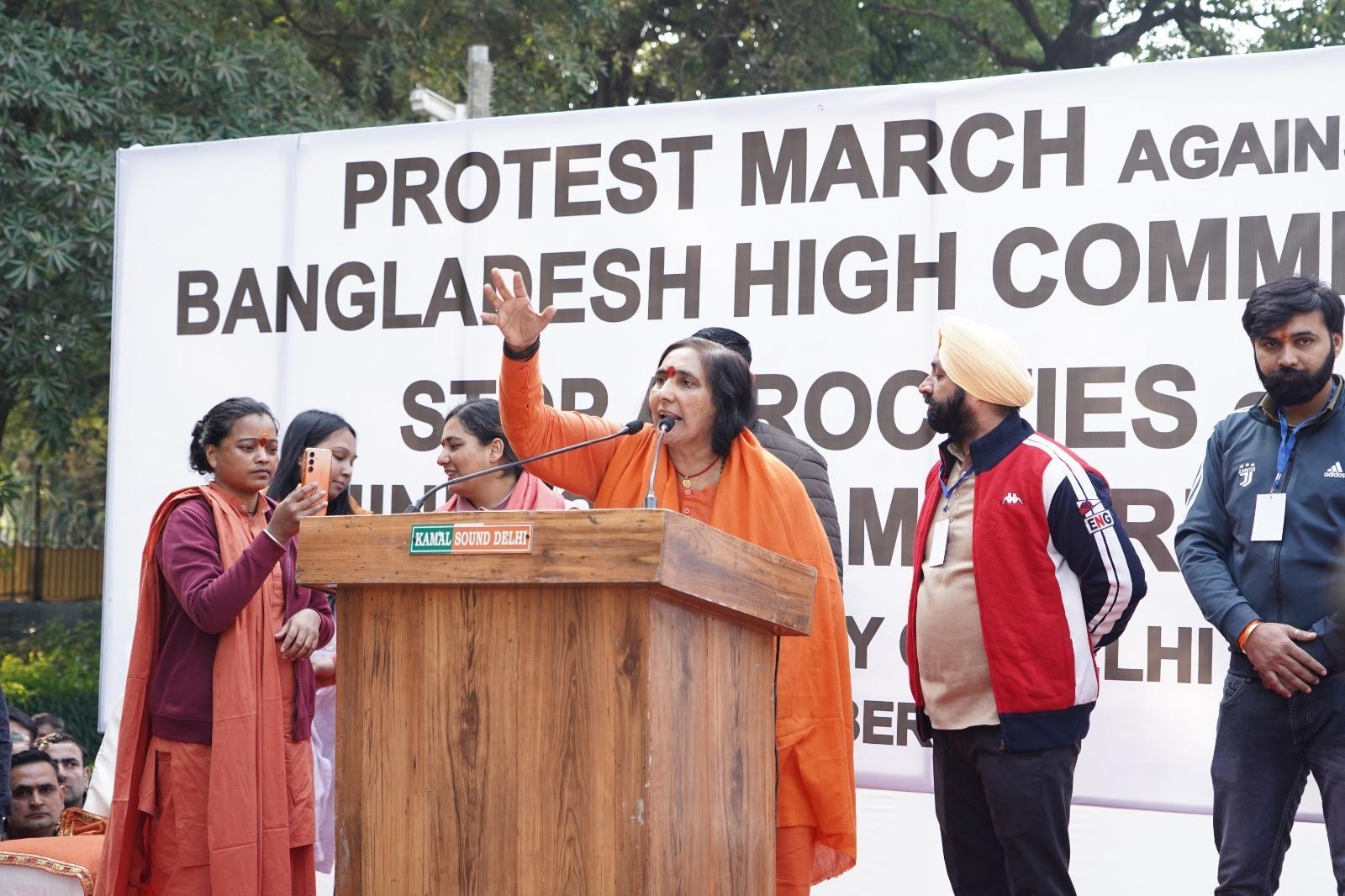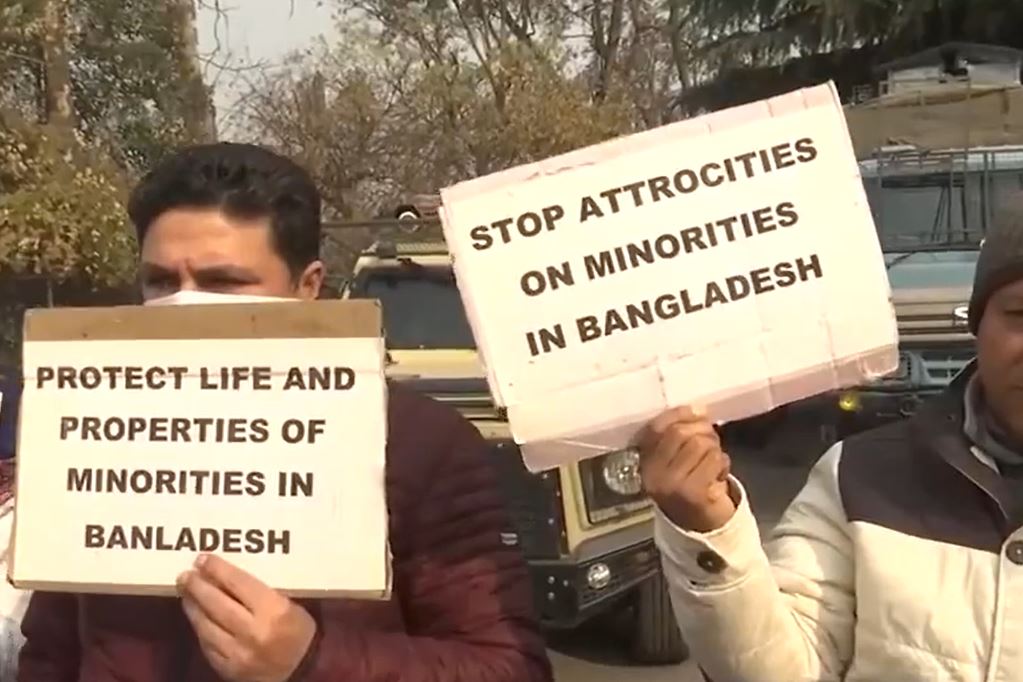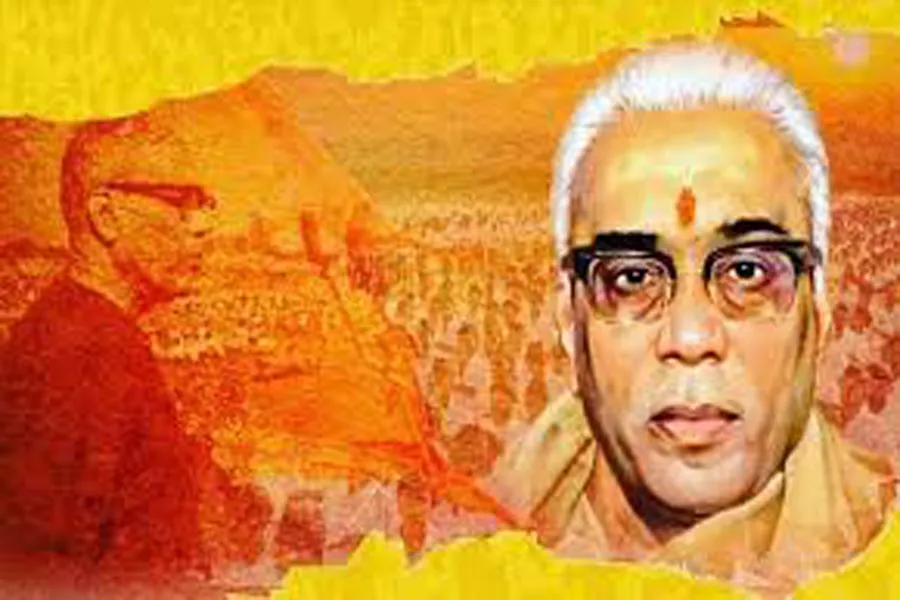सरकार के संरक्षण में इस्लामिक कट्टरपंथियों द्वारा बांग्लादेश में हिन्दुओं, बौद्ध, ईसाई तथा अन्य धार्मिक अल्पसंख्यकों पर लगातार हो रहे अत्याचार एवं मानवाधिकार हनन के विरोध में आयोजित प्रदर्शन एवं आक्रोश मार्च का आयोजन सिविल सोसाइटी ऑफ़ दिल्ली तथा 200 से अधिक सामाजिक एवं सांस्कृतिक संगठनों द्वारा किया गया।
विश्व मानवाधिकार दिवस पर आयोजित इस विरोध प्रदर्शन एवं आक्रोश मार्च का उद्देश्य हिंदू समुदाय और अन्य अल्पसंख्यकों पर बांग्लादेश में हो रही हिंसा और उत्पीड़न की ओर राष्ट्रीय और अंतरराष्ट्रीय स्तर पर ध्यान आकर्षित करना है।
प्रधानमंत्री संग्रहालय, तीन मूर्ति चौक से प्रारंभ होकर चाणक्यपुरी थाना पर समाप्त हुए इस मार्च में समाज जीवन के सभी क्षेत्रों में कार्यरत लोगों एवं संस्थाओं ने भाग लिया।

चाणक्यपुरी थाना के सामने बने मंच से साध्वी दीदी ऋतंभरा जी, इस्कोन के श्री केशव मुरारी जी, इंडिया सेंट्रल एशिया फाउंडेशन के निदेशक श्री रमाकांत द्विवेदी जी, दिल्ली पुलिस के पूर्व आयुक्त श्री एस एन श्रीवास्तव जी, बांग्लादेश में भारत की पूर्व उच्चायुक्त श्रीमती वीणा सिकरी जी, बौद्ध धर्मगुरु श्री राहुल भंते जी, सुप्रीमकोर्ट में वकील श्रीमती प्रियदर्शनी जी, लेखक, एक्टर एवं सामाजिक कार्यकर्त्ता रूद्रनील घोष जी तथा कोलकाता उच्च न्यायालय के पूर्व न्यायाधीश एवं भाजपा सांसद श्री अभिजित गांगुली जी ने मार्च को संबोधित करते हुए अंतरराष्ट्रीय समुदाय से आह्वान किया कि वह बांग्लादेश में अत्याचार एवं नरसंहार का सामना कर रहे हिन्दुओं के मानवाधिकारों की रक्षा करने के लिए प्रभावी कदम उठाए।

साध्वी दीदी ऋतंभरा ने कहा कि विश्व की संस्थाएं हिन्दुओं पर हो रहे ऐसे अत्याचारों पर चुप क्यों है? हमारी करुणा को कायरता मत समझो। महिलाओं का अपमान हिन्द समाज सहन नहीं करेगा।
इस संबंध में सिविल सोसाइटी ऑफ़ दिल्ली द्वारा बांग्लादेश उच्चायुक्त को एक ज्ञापन भी सौंपा गया। ज्ञापन में याद दिलाया गया कि भारत एवं बांग्लादेश के मजबूत सौहार्दपूर्ण संबंध रहे है तथा भारत के लोग बांग्लादेश की स्वतंत्रता की लड़ाई के साथ एकजुटता में खड़े रहे। 1971 के मुक्ति संग्राम के दौरान, भारतीय सैनिकों ने बांग्लादेशी लोगों के साथ मिलकर लड़ाई लड़ी, और पाकिस्तान द्वारा किए गए हिंसा, शोषण और नरसंहार से बांग्लादेश को मुक्त करने के लिए अपना जीवन बलिदान कर दी। हालाँकि, हाल के वर्षों में, बांग्लादेश में स्थिति काफी खराब हो गई है, खासकर धार्मिक अल्पसंख्यकों की सुरक्षा और अधिकारों के संबंध में।
बांग्लादेश में 5 अगस्त 2024 के बाद हिन्दुओं एवं अन्य धार्मिक अल्पसंख्यकों की स्थिति काफी तेजी से ख़राब हुई है।
सिविल सोसाइटी ऑफ़ दिल्ली द्वारा ज्ञापन के माध्यम से यह मांग किया गया कि बांग्लादेश में हिन्दुओं एवं अन्य अल्पसंख्यकों के मानवाधिकारों की रक्षा किया जाए। हिन्दुओं तथा अन्य धार्मिक अल्पसंख्यकों को शांतिपूर्ण सह अस्तित्व अधिकार मिलना चाहिए तथा उनके खिलाफ जारी हिंसा समाप्त होनी चाहिए।










